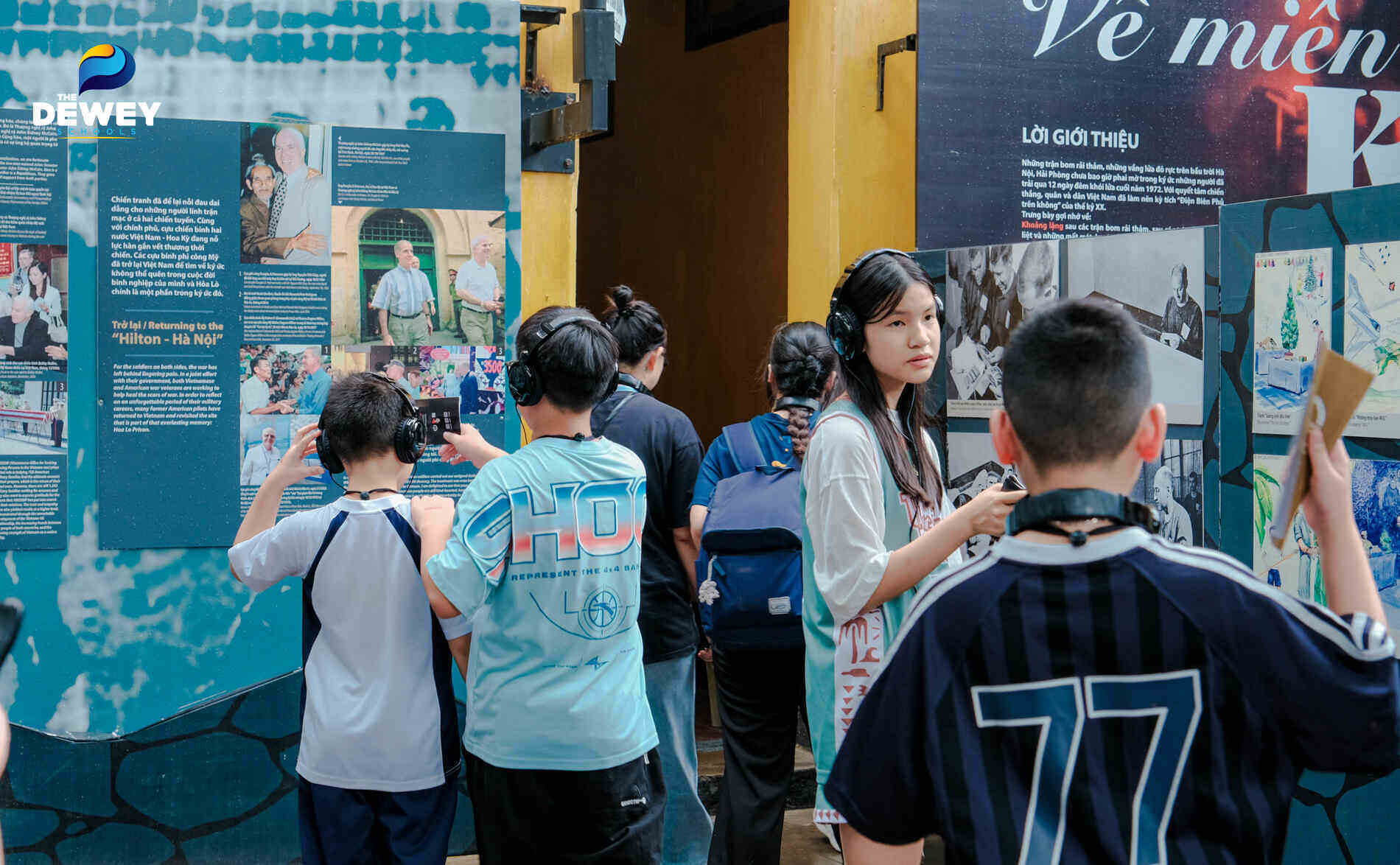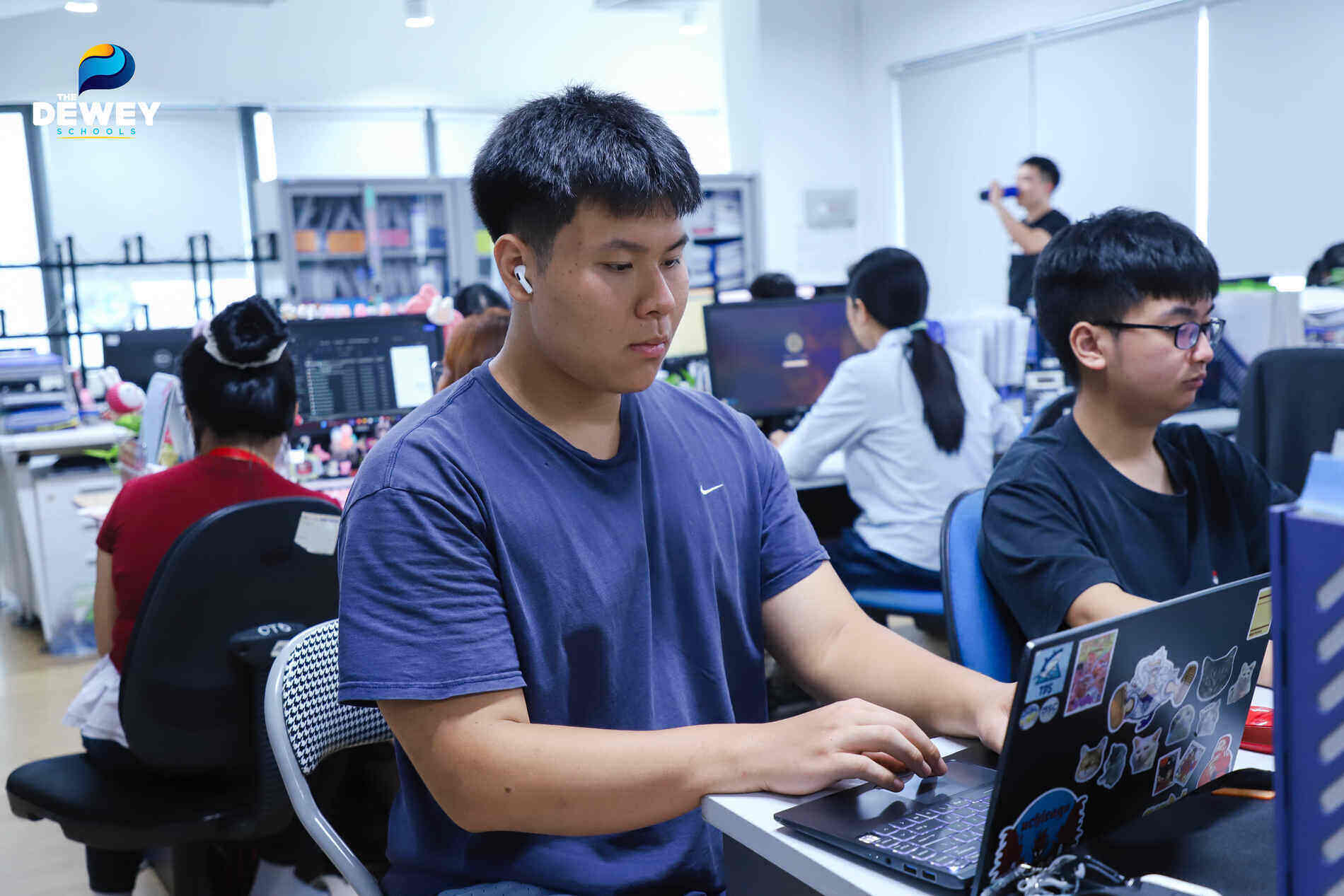“Do you think what we post online daily could impact our future?” This thought-provoking question from Mr. Trinh Gia Hien, an English Informatics teacher at The Dewey Schools, sparked curiosity among TDSers at the beginning of his lesson. Under the theme “The Power of Digital Footprints,” students from 7Brussels and 6Lyon engaged in a lively and insightful discussion on the topic.
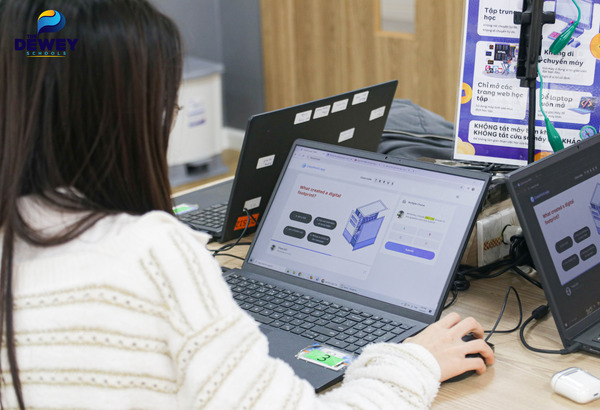
Through vivid and practical examples, students explored the concept of digital footprints and their two main types. Active digital footprints refer to traces users intentionally leave while using the internet, such as sending emails or updating social media statuses. In contrast, passive digital footprints are data collected without the user’s direct awareness, including browsing history, ad-viewing data, and information gathered through Cookies.
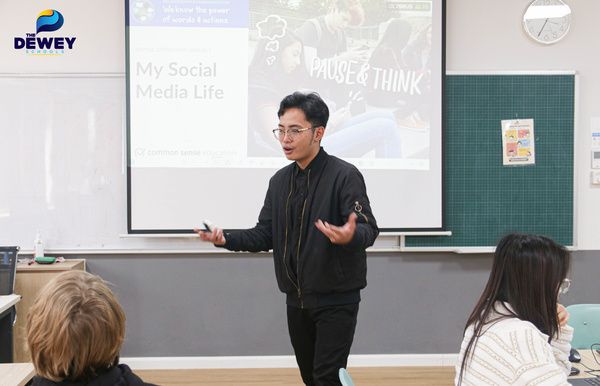
“A single Google search, a comment on Facebook, or even just watching a YouTube video—all of these actions contribute to your digital footprint. The “permanence” of digital footprints can be a double-edged sword for users.” – Mr. Gia Hien shared.
During the lesson, TDSers engaged in a dynamic discussion about the benefits and potential risks of digital footprints. Some students argued that user-provided information on the internet serves as valuable data, enabling businesses to better understand customer preferences and develop effective strategies. For law enforcement, digital footprints can be crucial clues in criminal investigations. However, other students expressed concerns that oversharing personal information online could make individuals targets for malicious actors, leading to risks such as scams, extortion, or identity theft.

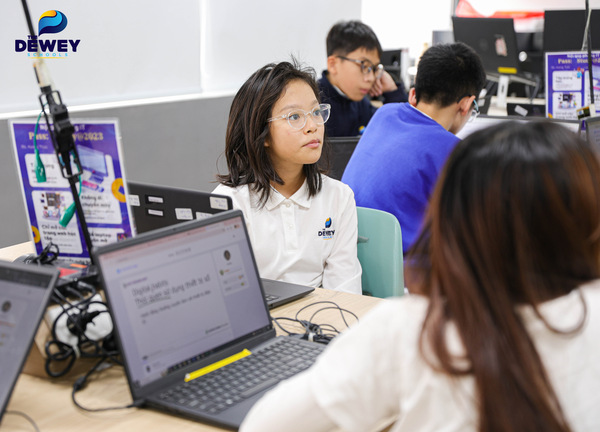
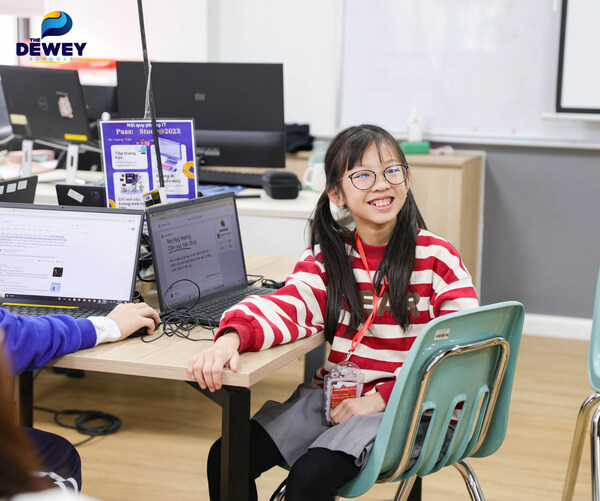
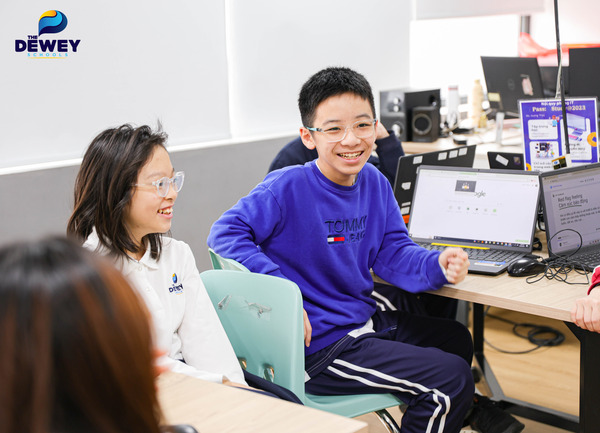
“I found this lesson incredibly engaging and valuable! Through the minigame and real-life scenarios presented by our teacher, we were able to clearly understand the importance of building and maintaining a positive online presence while also protecting our personal information.” – Na Youseol (7Brussels) enthusiastically shared.

“Compared to the 8x and 9x generations, Alpha-generation students are exposed to technology at a much younger age and use the Internet and social media far more frequently. Once they understand that every digital action leaves a trace, they will learn to use technology more responsibly.” – Mr. Gia Hien emphasized.
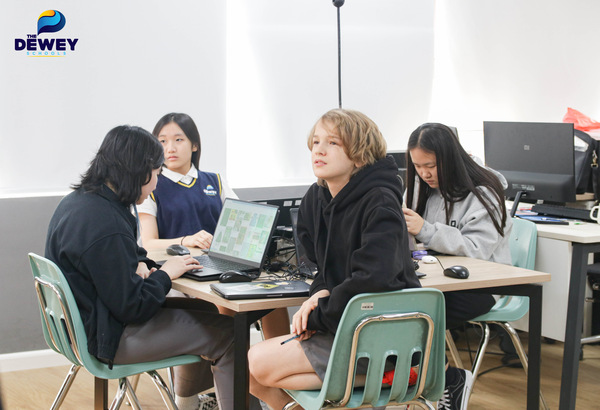
Through the Digital Citizenship curriculum, The Dewey Schools not only equip students with the skills to use technology effectively, safely, and responsibly but also provide them with a solid foundation to confidently navigate the digital future with the mindset of global citizens.
